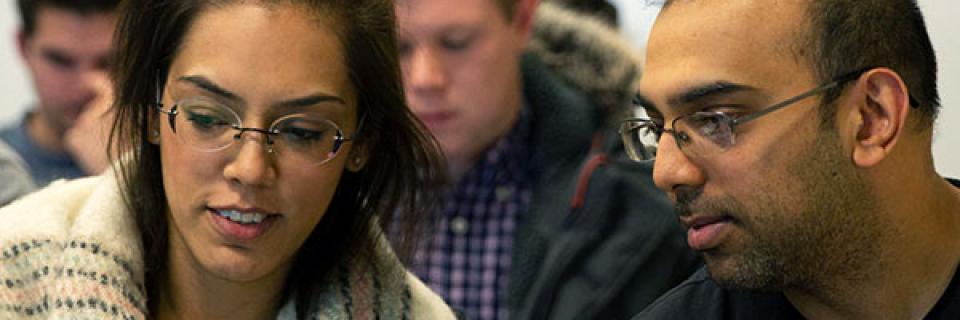As Society Closes — and Reopens — After COVID-19, Data Literacy is Key

The world’s experience fighting the COVID-19 pandemic offers a host of lessons.
But for Myles Gartland, Ph.D., dean of the College of Business, Influence and Information Analysis at Rockhurst University, the pandemic also illustrates the importance of data literacy, and why it’s so important to understand where data comes from, what it means, and how it’s shaping our understanding of the world around us.
“I think for years, a lot of us have conflated data literacy and math,” he said. “Any time we say a number, we say ‘that’s math, and I’m not good at math.’”
COVID-19 illustrates, Gartland said, the importance of data literacy and why it should be considered a vital skill for those living in the 21st century.
What is data literacy? Essentially, it’s an understanding of the data, their sources and what does in mean in context. Gartland said it’s different from mathematical analyisis and doesn’t mean learning advanced data methods. It means being aware of sources, and always asking questions — including, "Why does this matter?"
“Start to think about sources and ways that people can manipulate data. You can always find the data to support your version of reality,” he said. News channels and even newspapers have really started to abuse this to make their point. “Someone with good data literacy can make and think about those differences.”
And they have to do it fast — because so much of our lives happen online and smartphones are so prevalent, society is producing data at an amazing rate.
In the conversations about COVID-19, Gartland said, one can see how quickly data is emerging, and how leaders have to take a wide range of data into consideration — for instance, balancing the economic costs of the shutdown versus the human cost of opening back up. Data is also very political.
“You’re asking some really hard questions at this point, but they are good questions,” he said. “That data is going be in conflict, and that’s good. At some point you have to take data and do something with it.”
Gartland said the pandemic has also laid bare the barriers that exist to widespread data literacy. Just as access to technology is often an economic dividing line, the pandemic and associated shutdowns have exposed the way that data is consumed and understood differently by different people.
“We have a data divide in this country — we have people who know how to use it, how to manipulate it,” he said. “And we also have people who don’t know how to understand it and properly use it. That’s a societal problem.”







